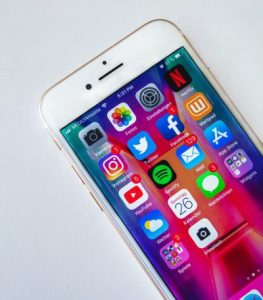Rewiring: Reflections on wifi connections
by Nadia Ramoutar MMM Communications Coordinator Ireland 16.06.2023
 Does an addict actually know they are addicted until they are without the addiction source? This thought crossed my mind lately when traveling in East Africa to visit the MMM Missions in Tanzania along with Sr Sheila Campbell. We both work in communications so it literally is our life’s work to be connected and share stories with the world on behalf of the MMMs. Communicators like to be able to connect and stay connected.
Does an addict actually know they are addicted until they are without the addiction source? This thought crossed my mind lately when traveling in East Africa to visit the MMM Missions in Tanzania along with Sr Sheila Campbell. We both work in communications so it literally is our life’s work to be connected and share stories with the world on behalf of the MMMs. Communicators like to be able to connect and stay connected.
What I didn’t realise until we arrived was how dependent I was on my ability to be connected, anytime, well actually all the time. Either my phone, my smart watch or my laptop access wifi instantly and I know if anyone sent me an email, message or text. Our team still working back at home are used to being able to contact us at a moments notice.
Unable to often access wifi, the news to me was that I felt anxiety when I didn’t have connection. When I didn’t have wifi access, which was often, I was actually a little frazzled at first. In fairness, I was traveling far from my family so I wanted them to be able to reach me, so that’s understandable. But, it was much more than that. What hit me was the realisation that so much of my life is actually spent online. I am dependent on wifi to live my life as I do.
My cellphone has the nerve to tell me how much time I spend on my phone. I think it is a suspicious source since how does it know if I have wandered off to a make a cup of tea. Or maybe I am in a meeting and it is next to me. Is my smart phone really that smart? The thing was that while I was in Tanzania, my phone was indicating much lower numbers for daily use. There was no denying it that I was experiencing a decline in screen time, but I was very busy meeting people and visiting field work of the MMM projects.
For many of us, we are unaware of some of our dependencies and probably would be uncomfortable calling them addictions. Unable to listen to podcasts or downloaded music, check social media posts, respond to texts or messages, know that an email just came in and respond immediately, I was a little lost at first. I listen to guided meditations on an app to fall asleep. I have to read a book instead. Imagine that! Within a week, a book was finished.
There was a notification for people who sent me an email that I was traveling and may not be able to access wifi right away. I had taken time to make sure all family and close friends understood my wifi connection might not be great. But, had I prepared myself for what that meant? No, I had not because I didn’t know I needed to do so. The shock of grief I experienced going 12 or 14 hours without wifi was a surprise to me. I needed to revisit this relationship with being wired to wife 24/7. I didn’t grow up this way. The internet was not even invented when I was a child.
I noticed how after a week, I started to relax about this. I started to accept my new normal. I didn’t get upset when I couldn’t get on wifi. I checked in with my family when I did have it and reminded them that I didn’t know when I would have it again. I sent emails and images to work when I could. Through some miracle, seeing the hardships of many of the local people in Tanzania, I realised that my first world wifi problems were not even a problem at all – they were an inconvenience at best. In comparisons to the challenges I saw in the schools, clinics and homes in Tanzania I felt disappointed in my irritations and anxieties.
Western world woes soon pale in comparison to the serious issues of people living in the most vulnerable communities in the world. When an orphaned child has no food to eat when they come home from school, that’s a real concern. When someone is trying to care for their dying mother and a small child at the same time with no food or access to medicine or healthcare and are dependent on mission visitors, that’s stressful. When a child has cancer and needs surgery and the family cannot afford the money to pay for a hospital or even the transportation costs to see a specialist, this is a true problem. Many young children and babies die this way.
My unstable internet connection I learned, didn’t really matter at all.
SEE ALL BLOG POSTS
